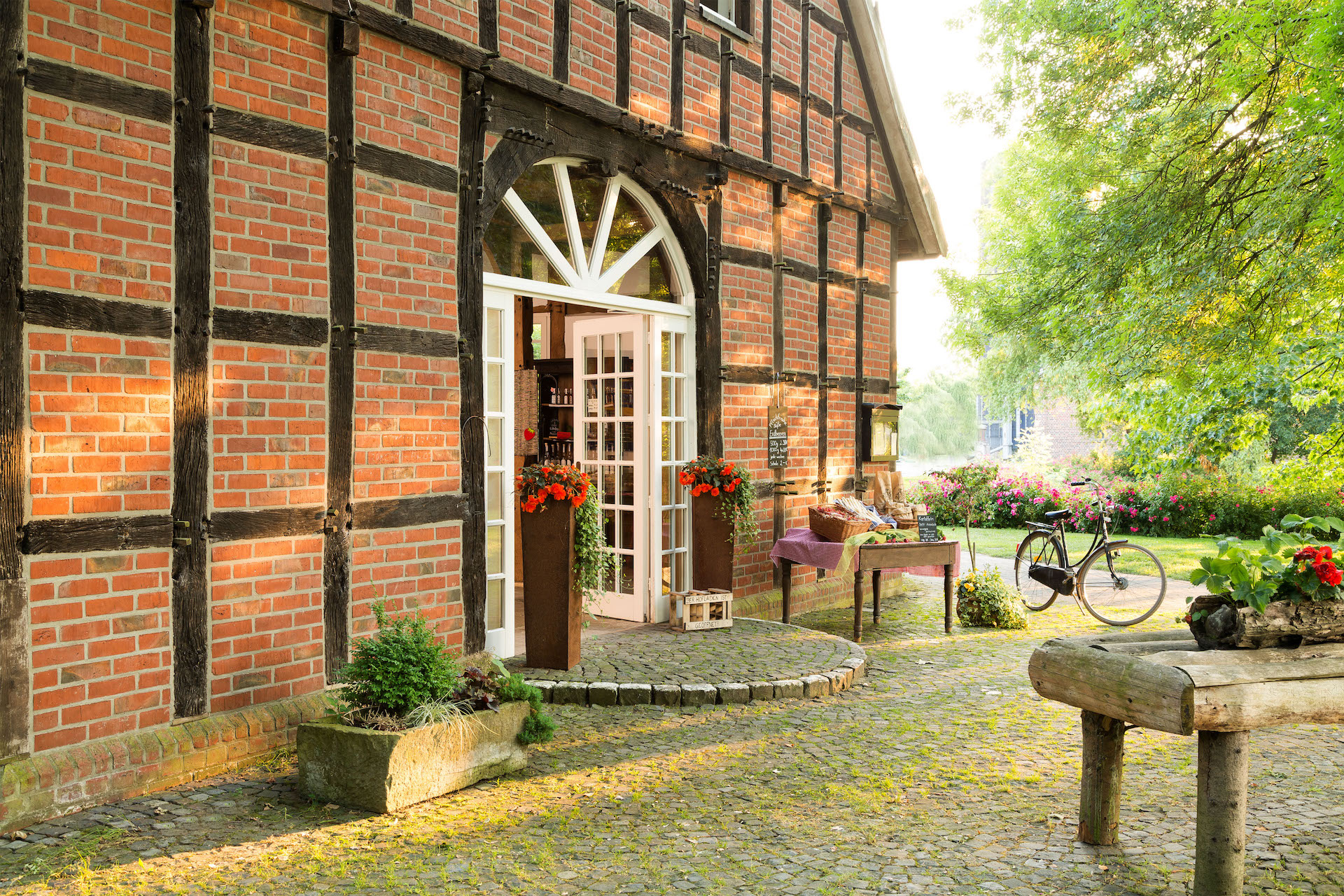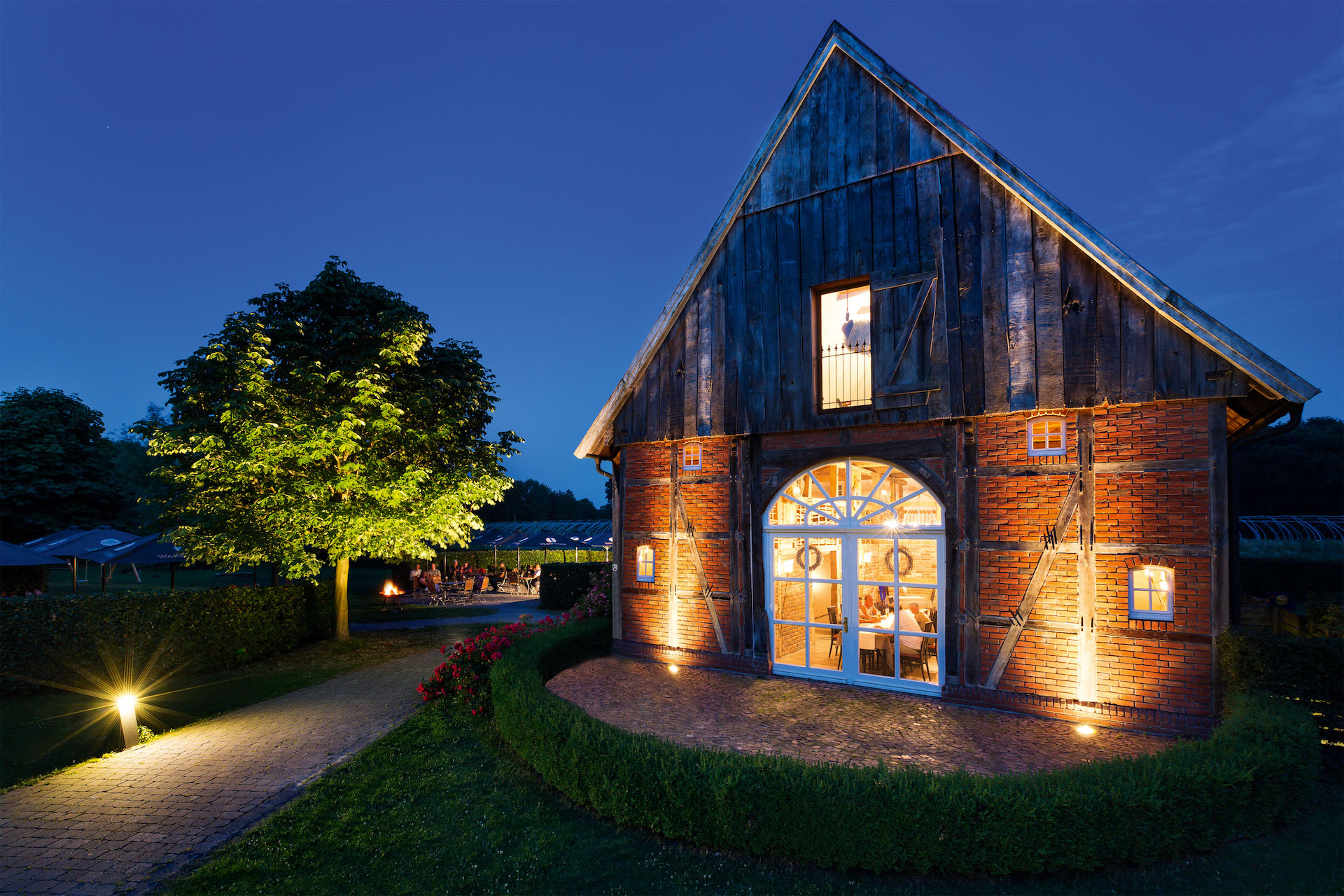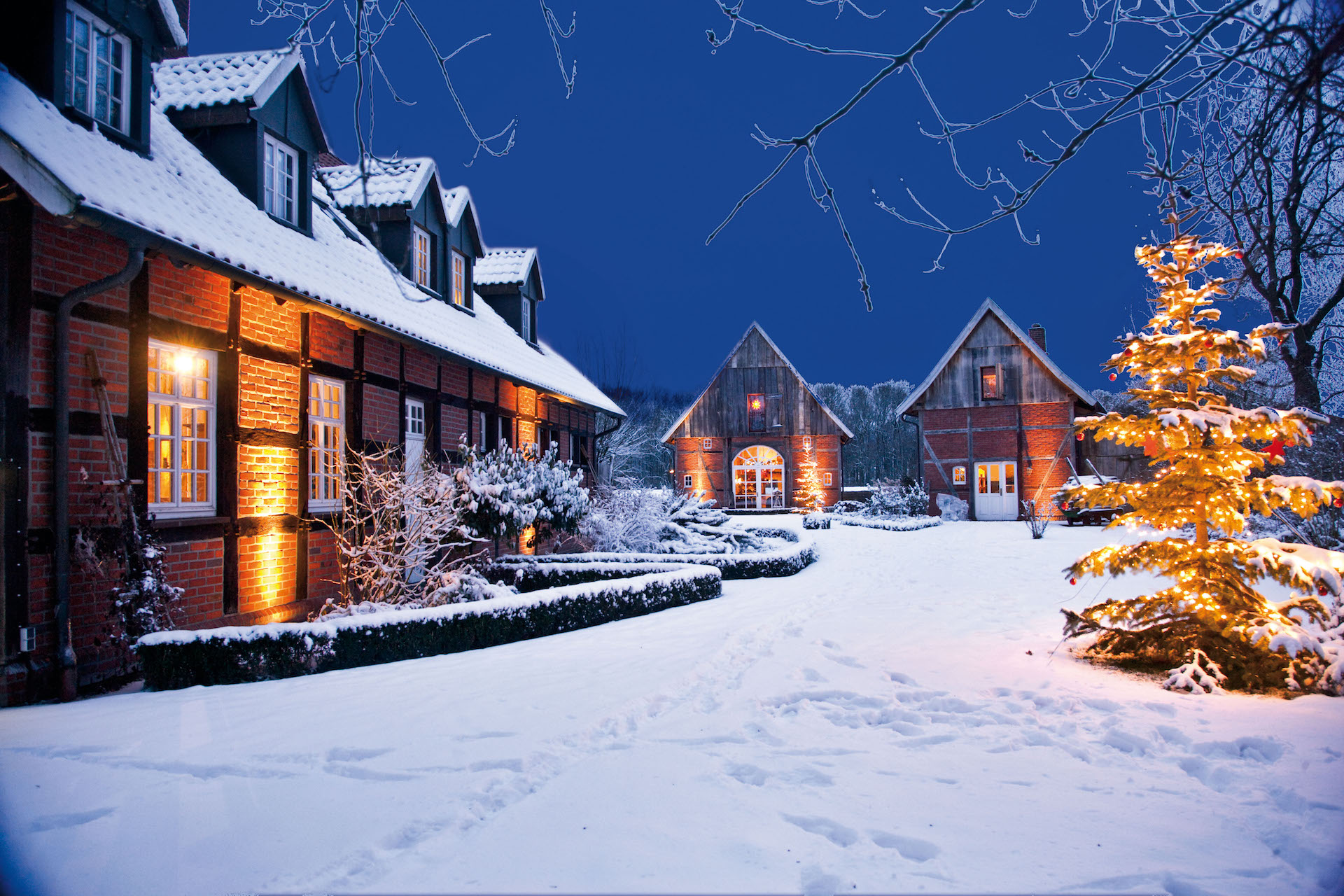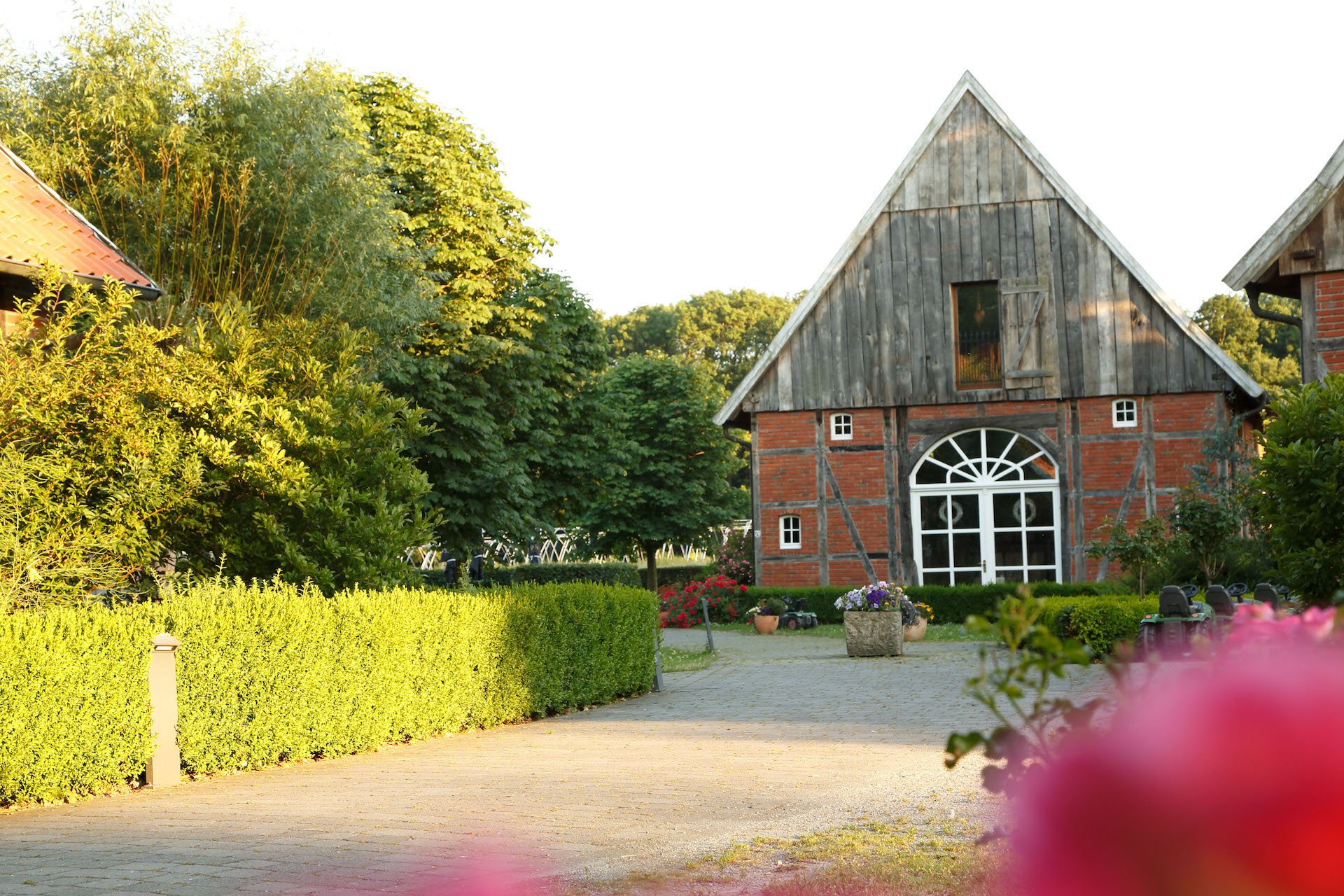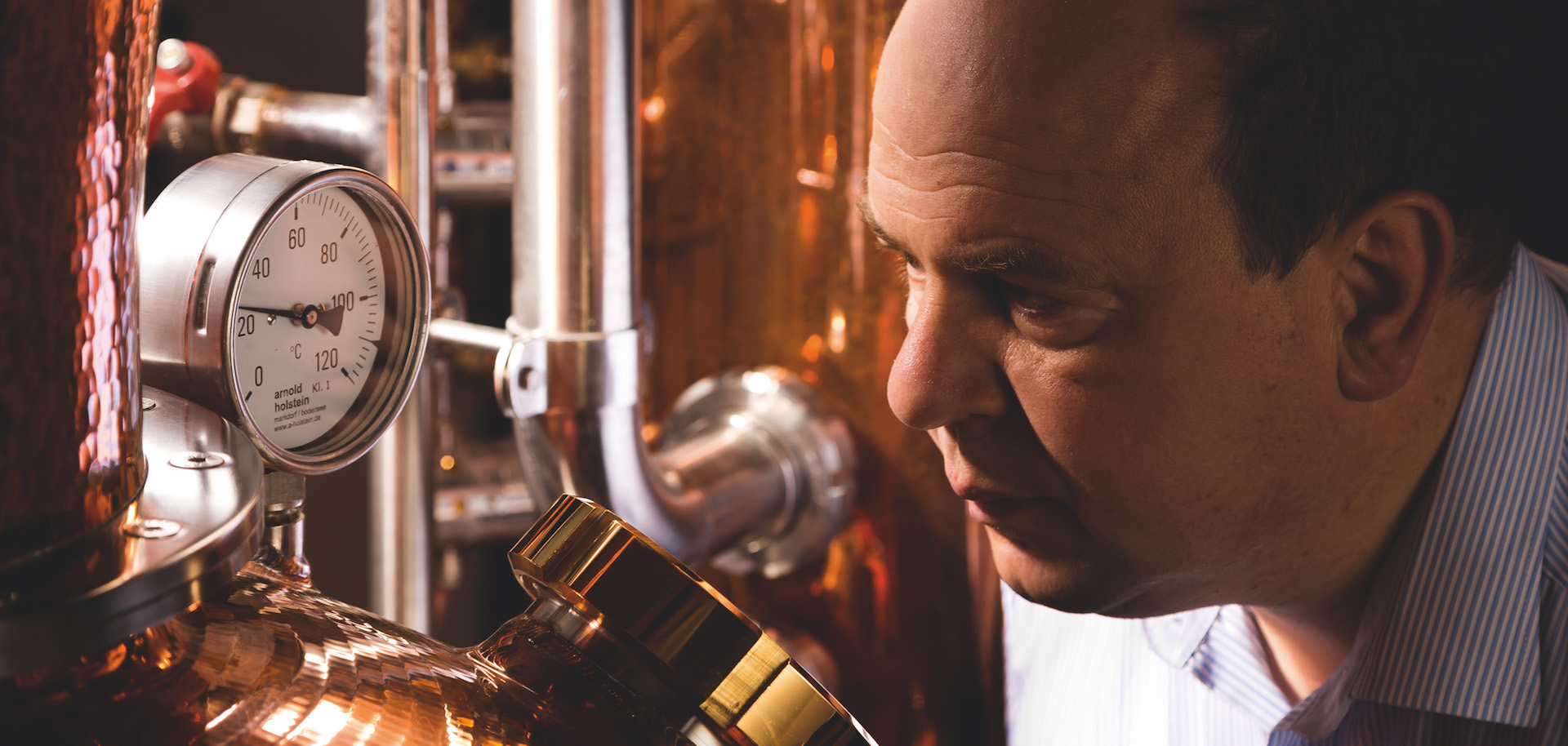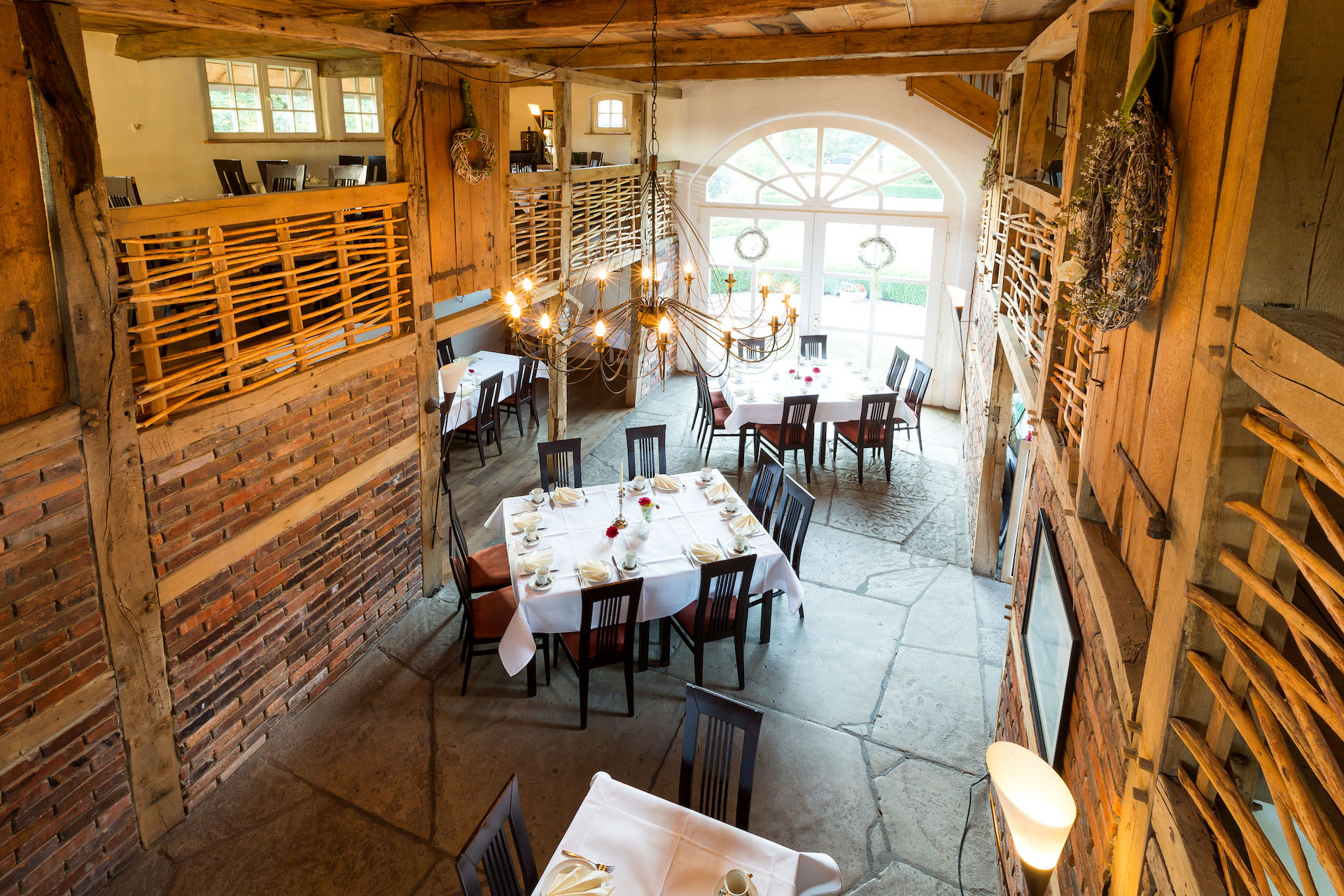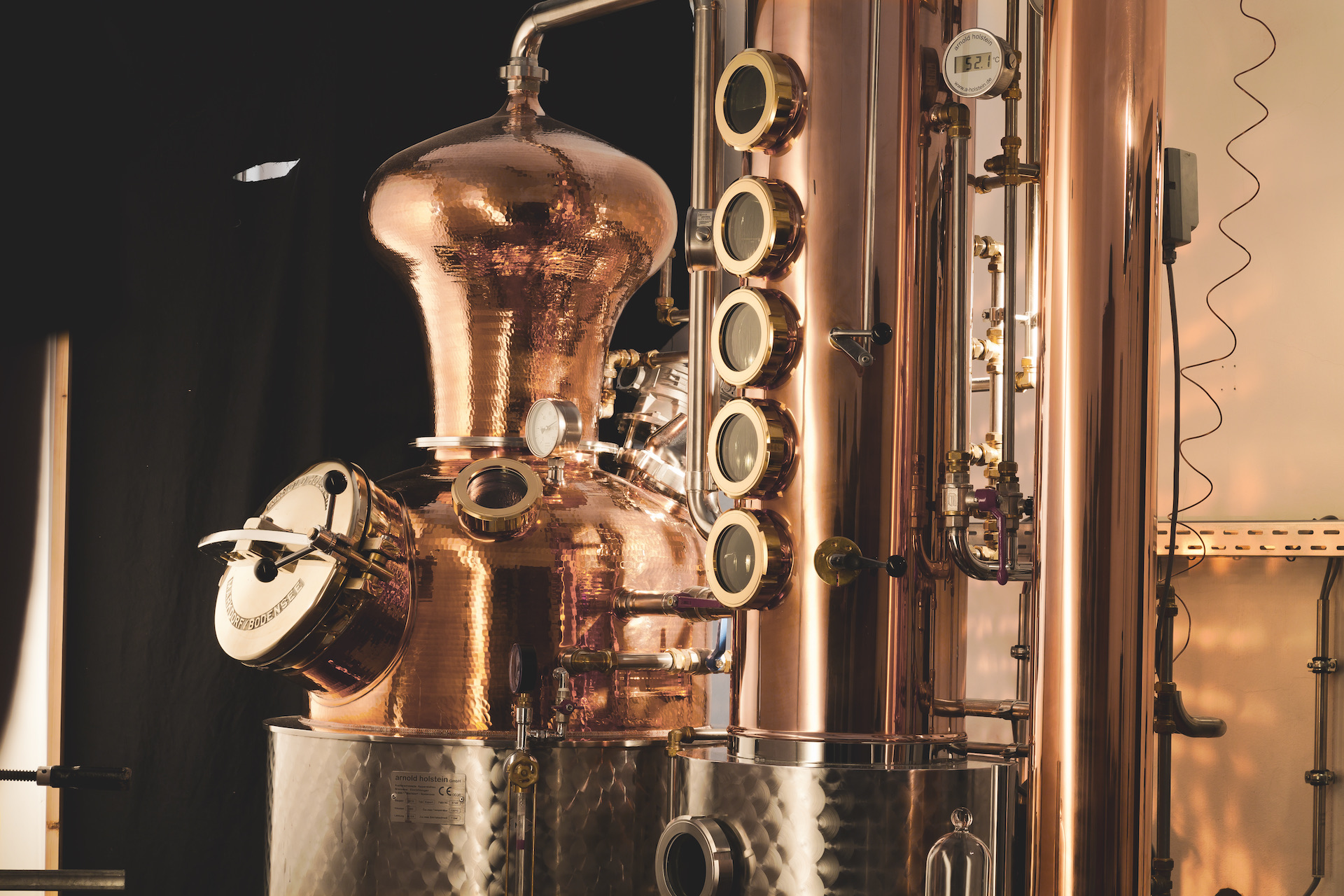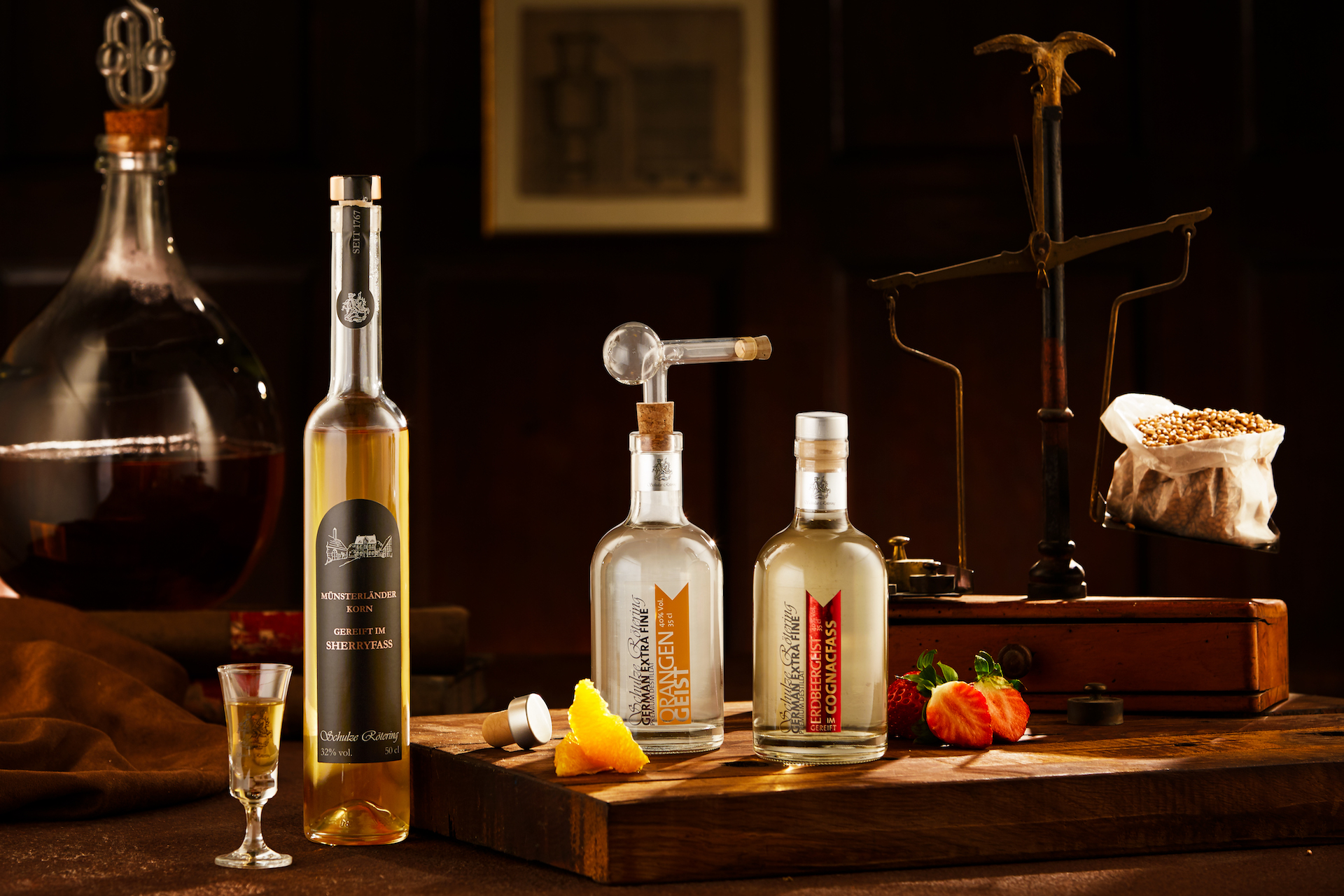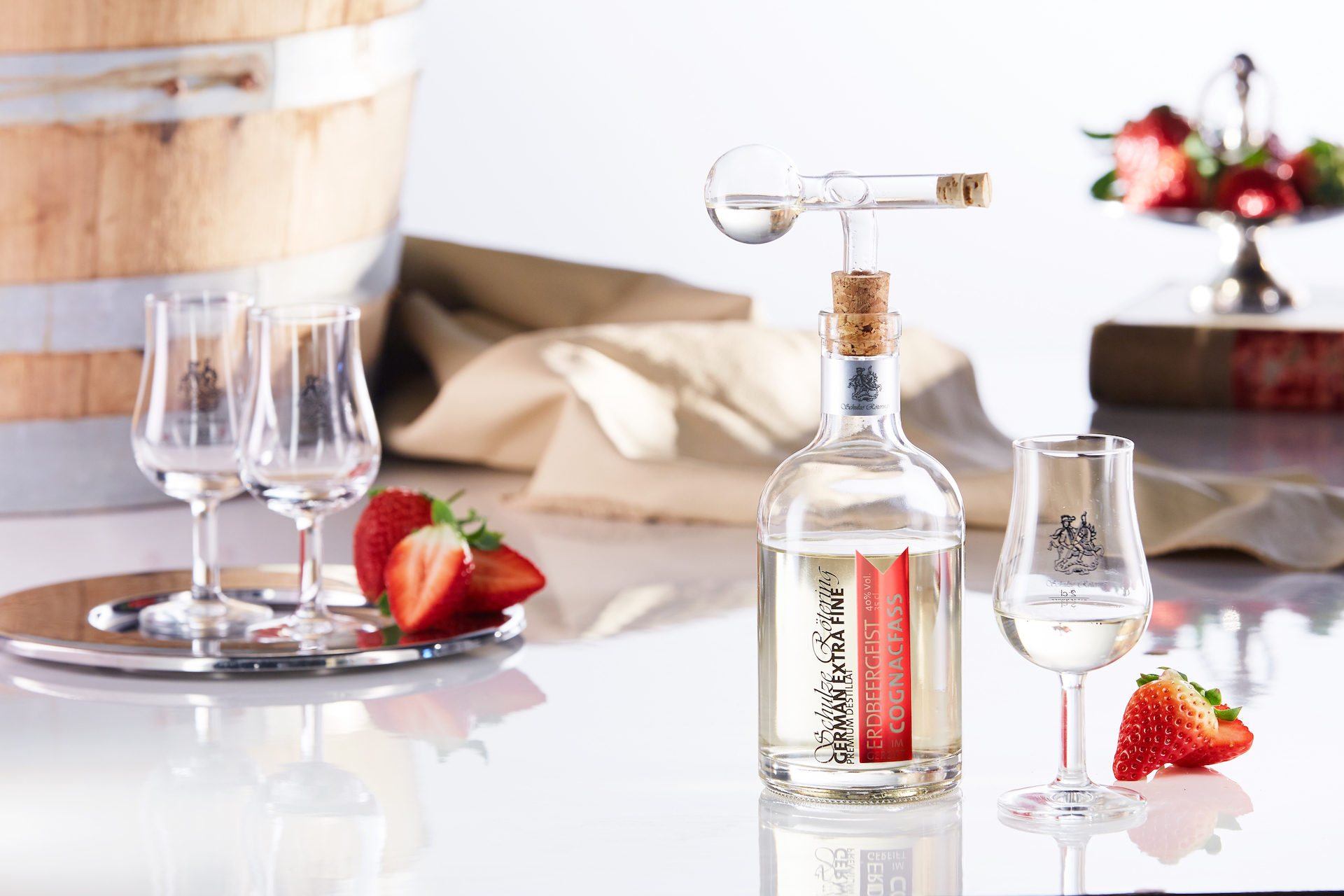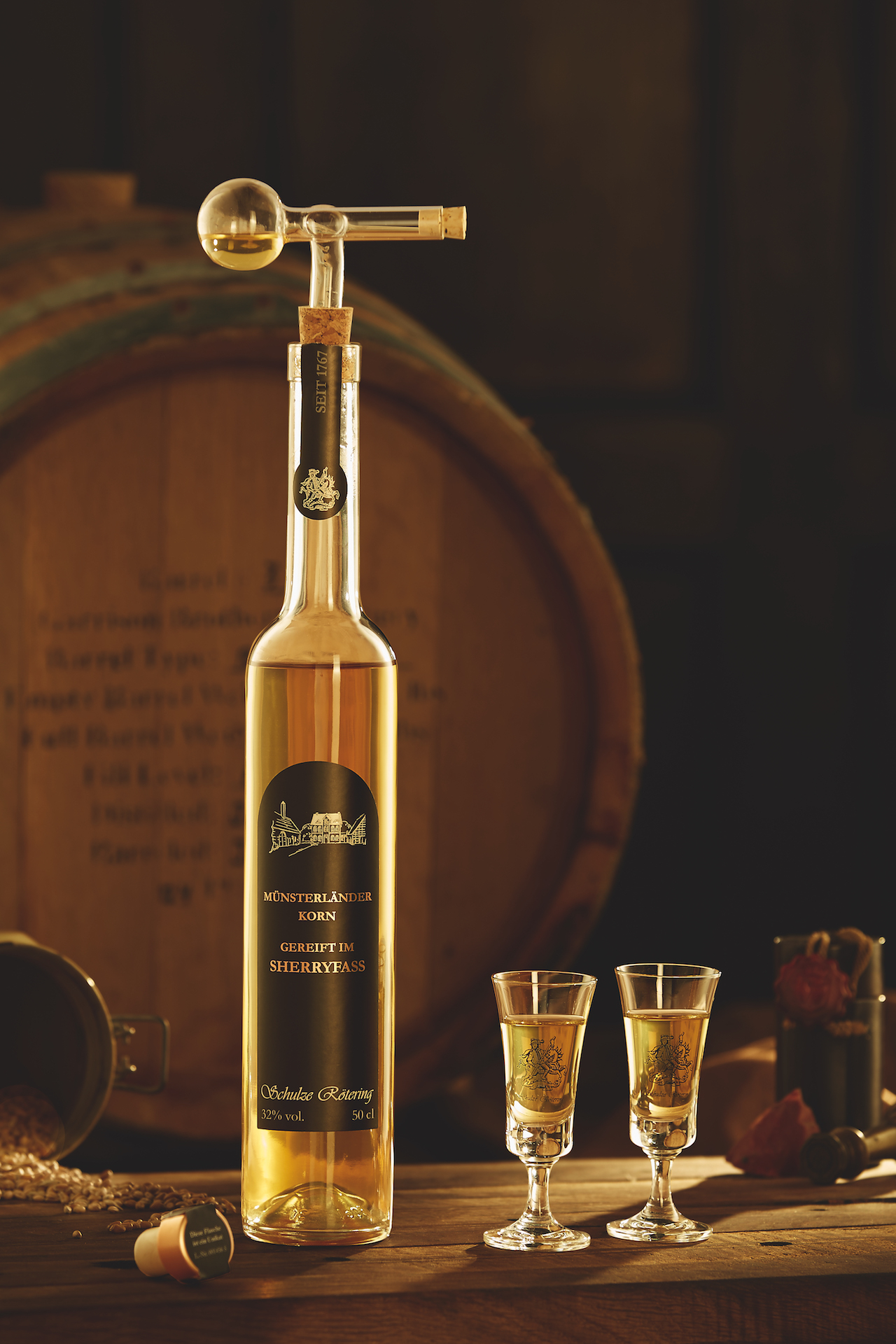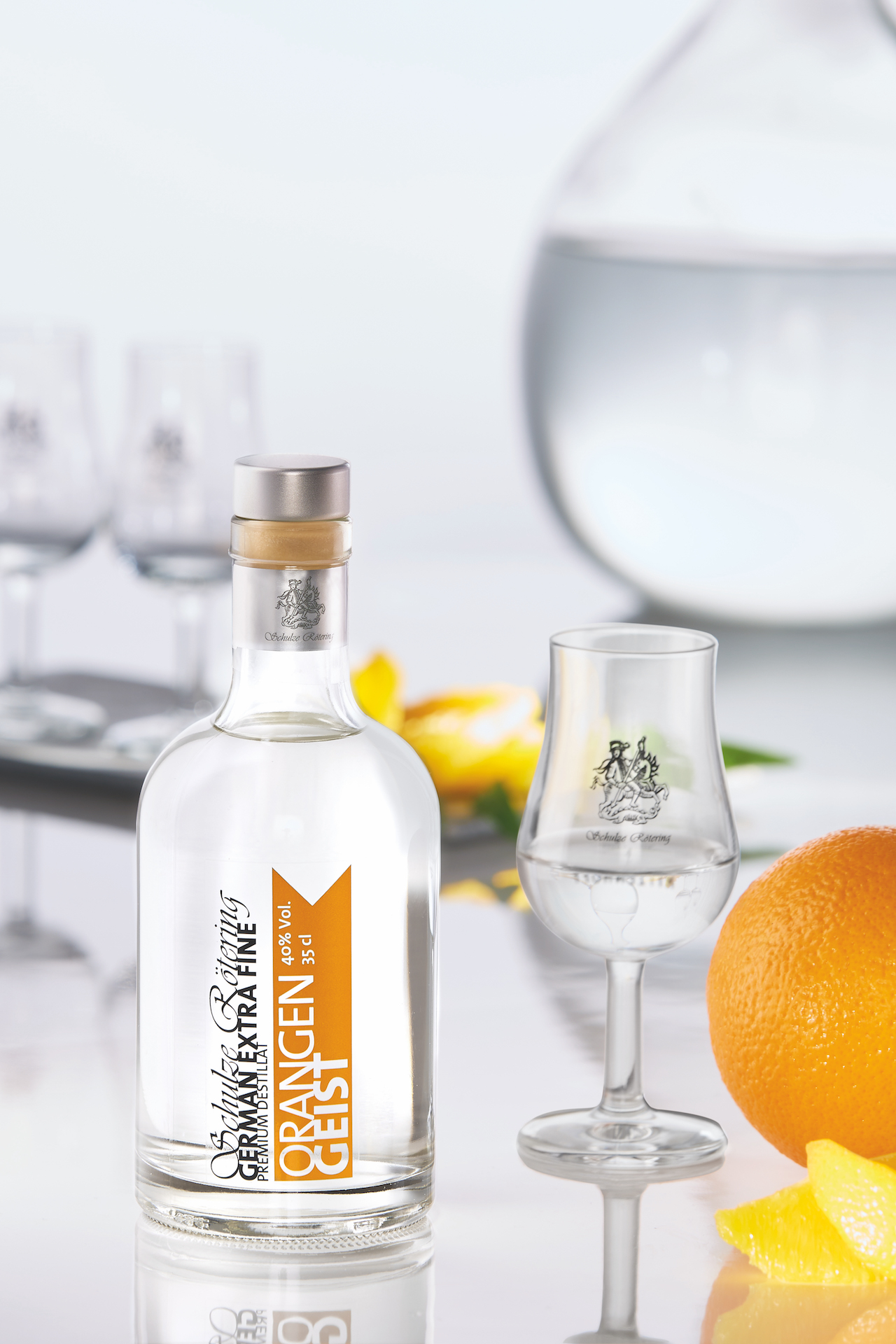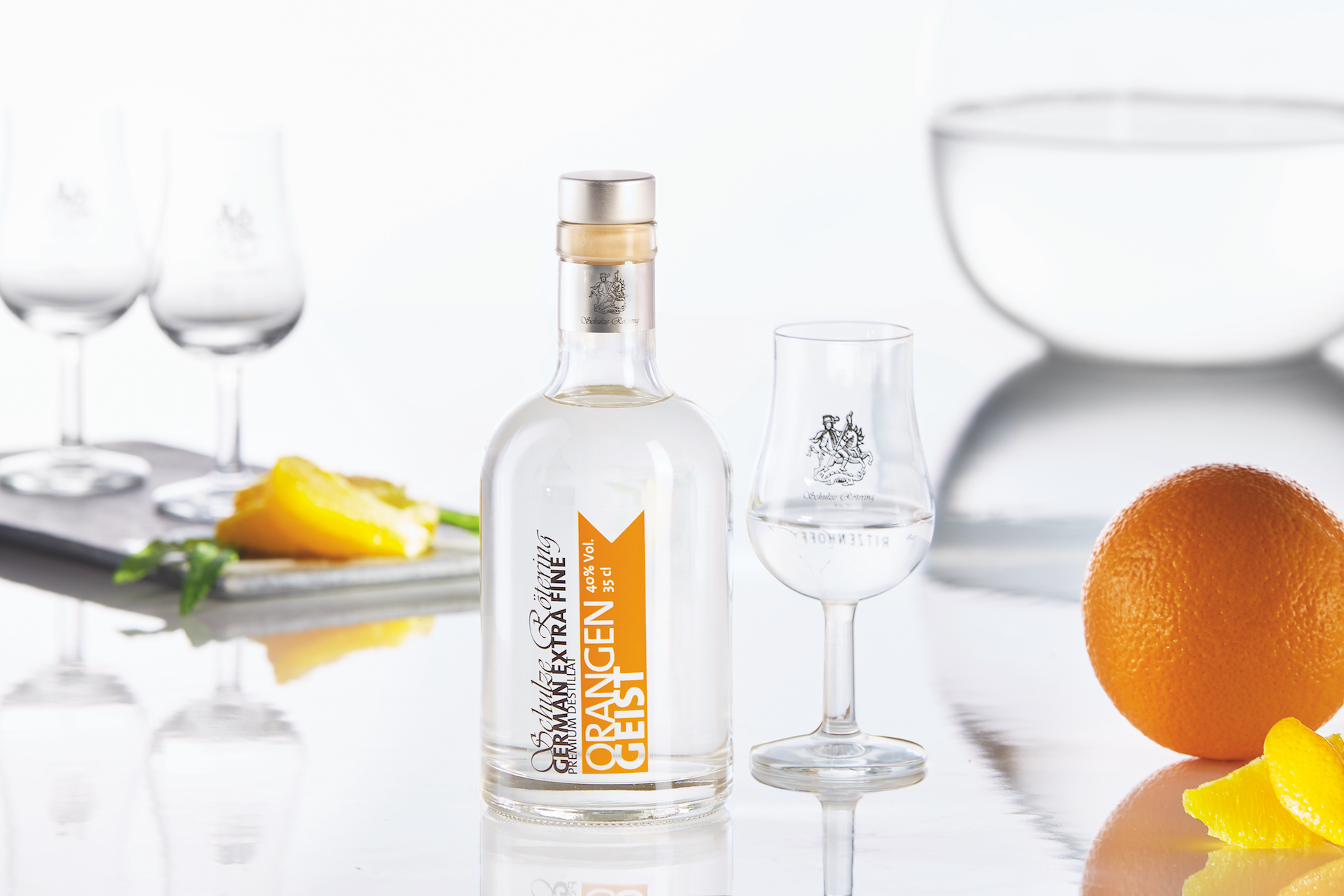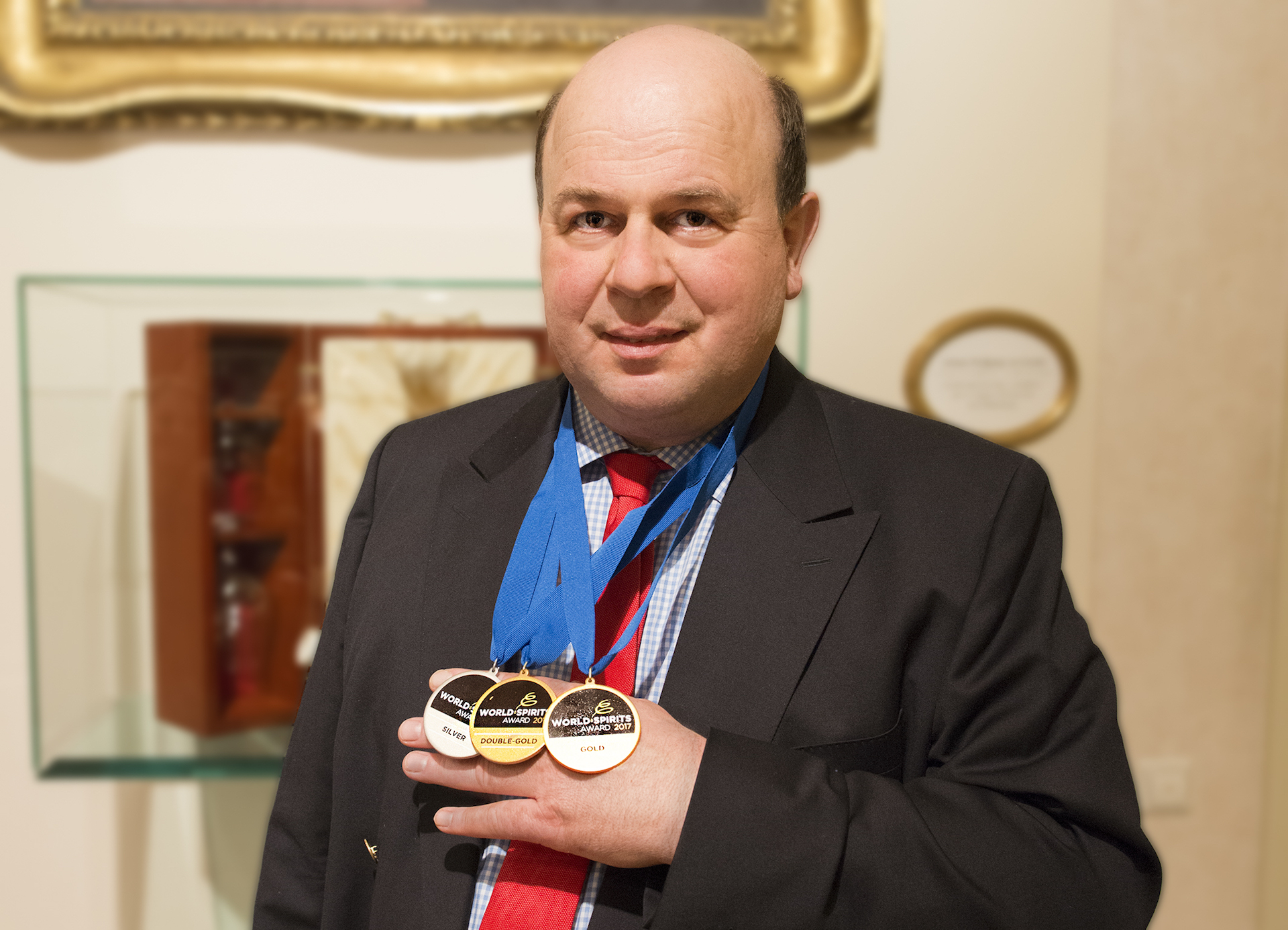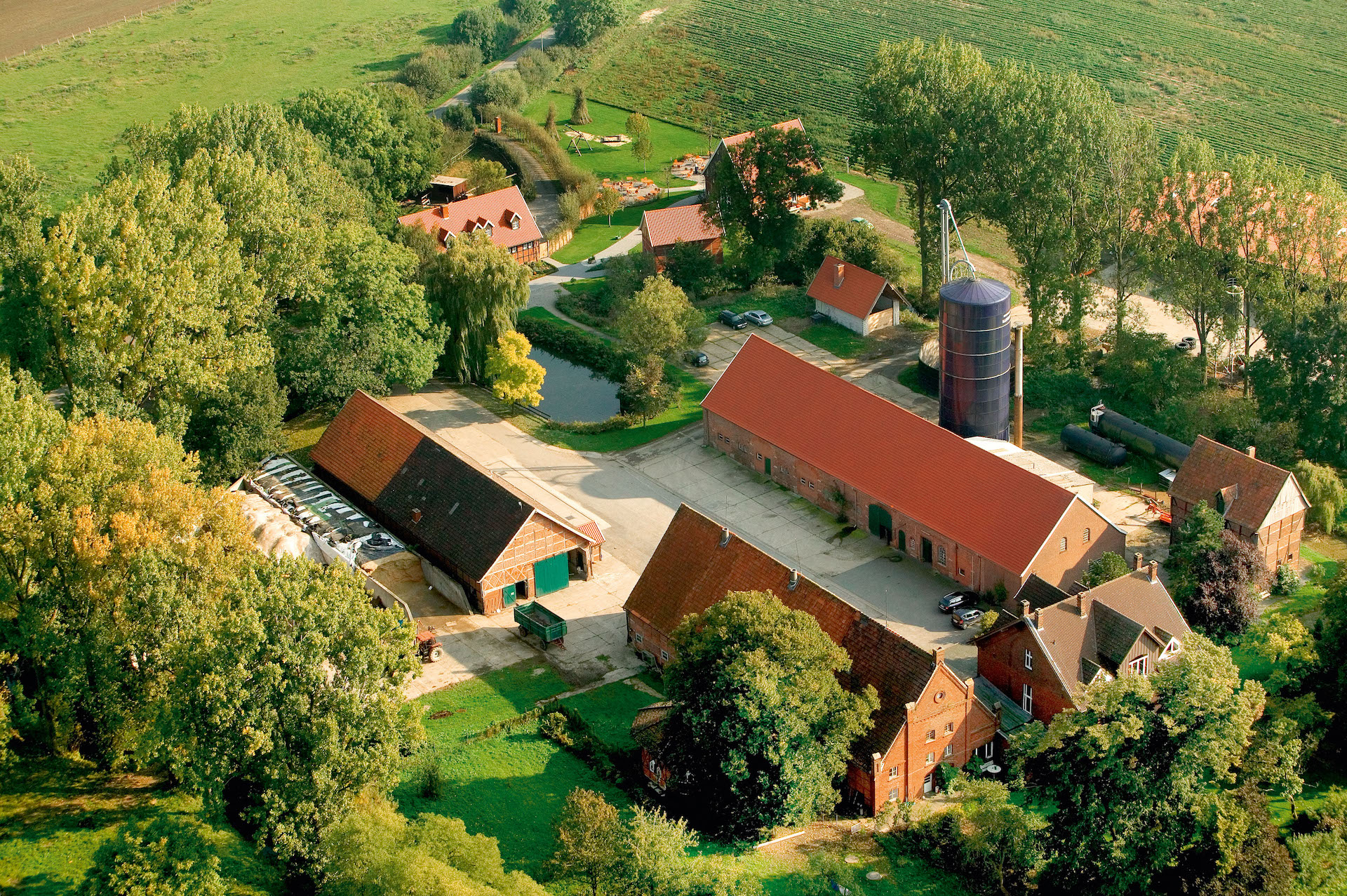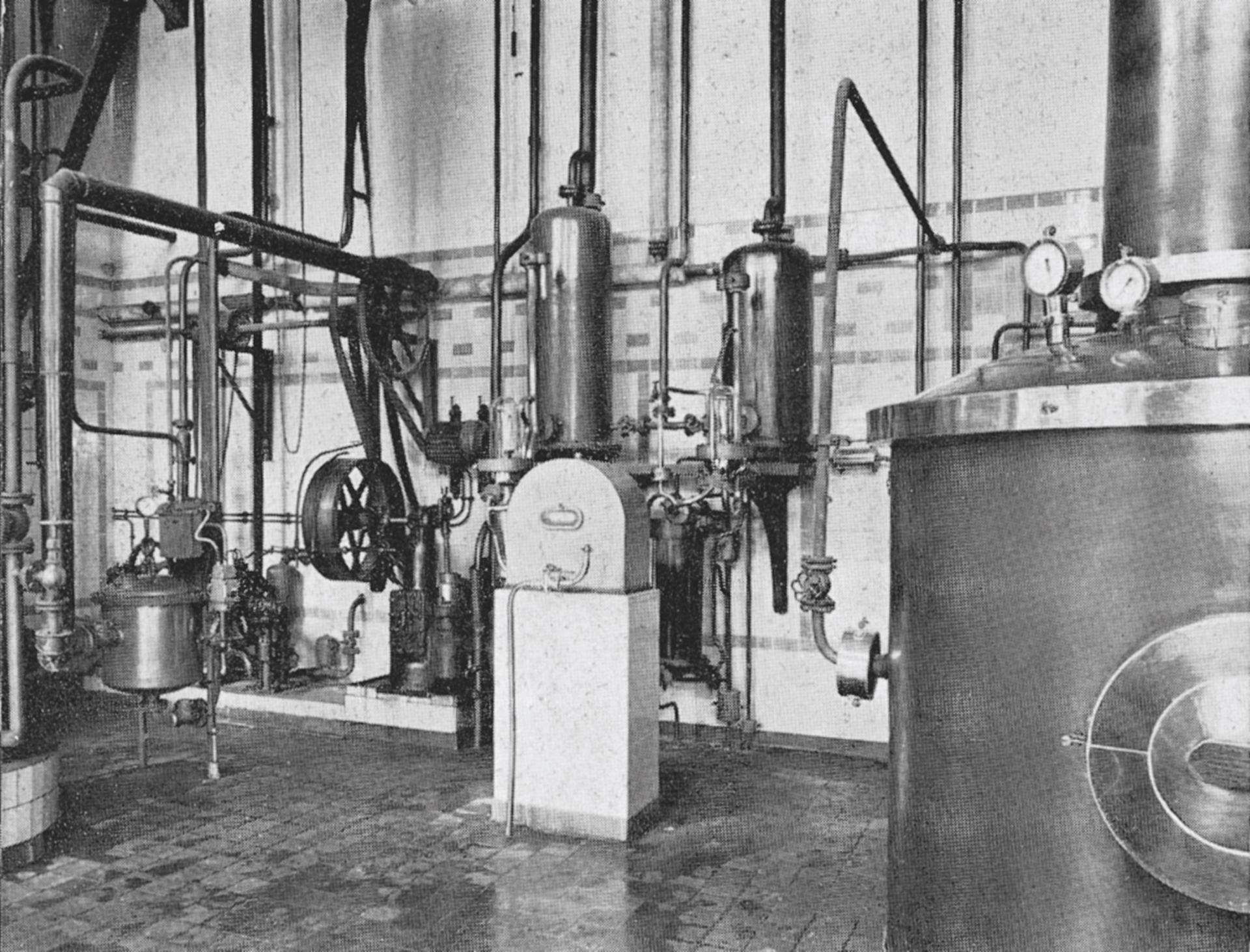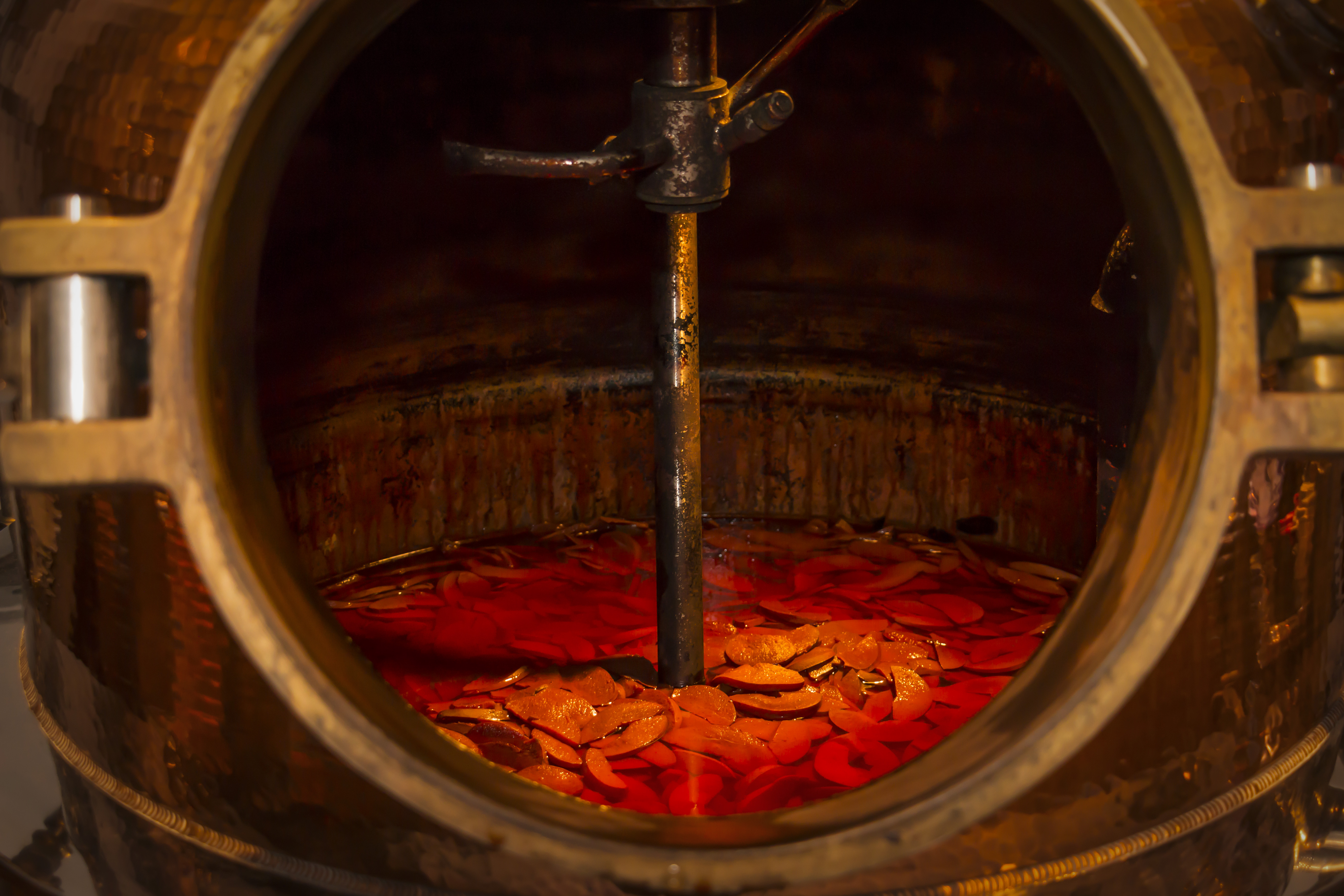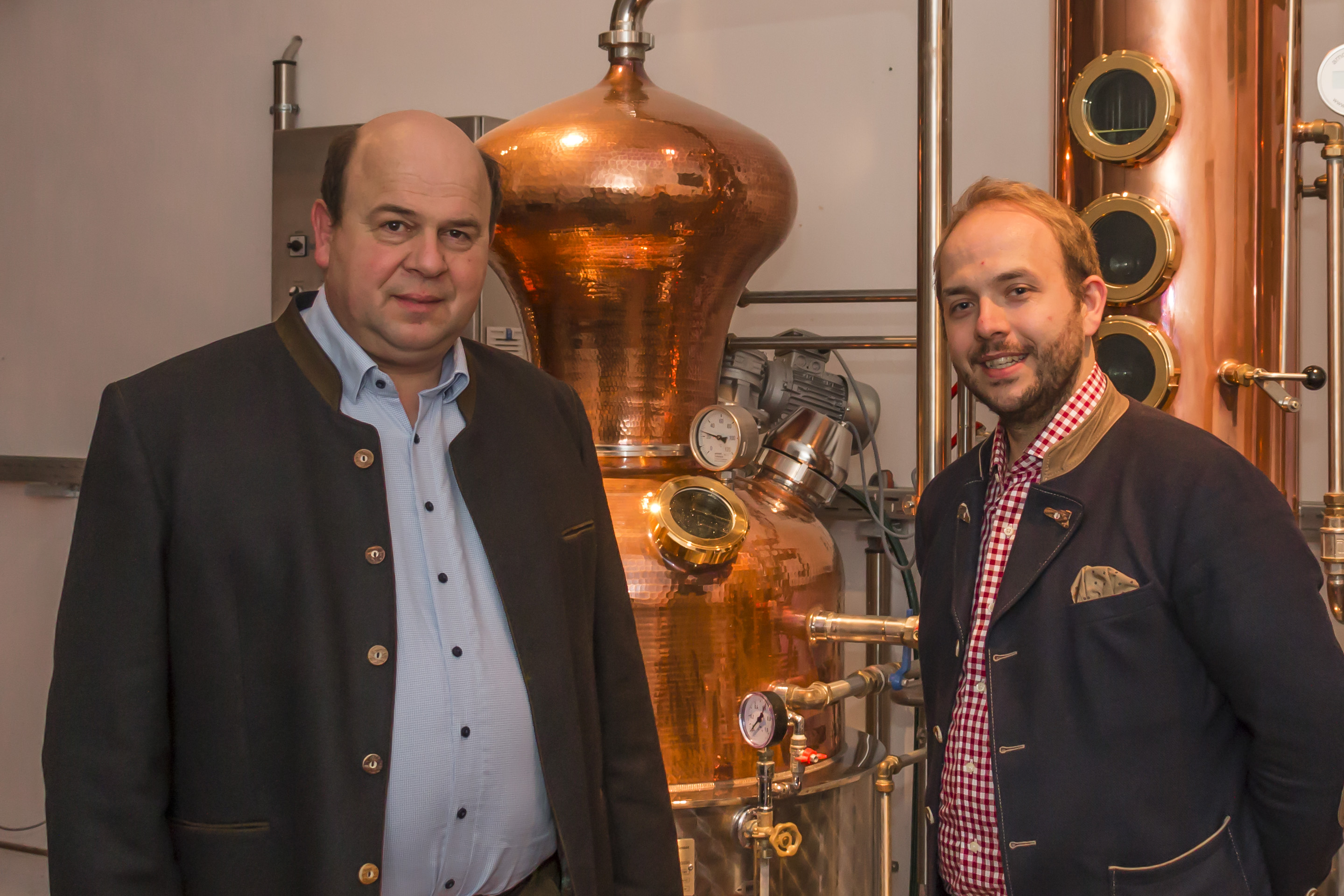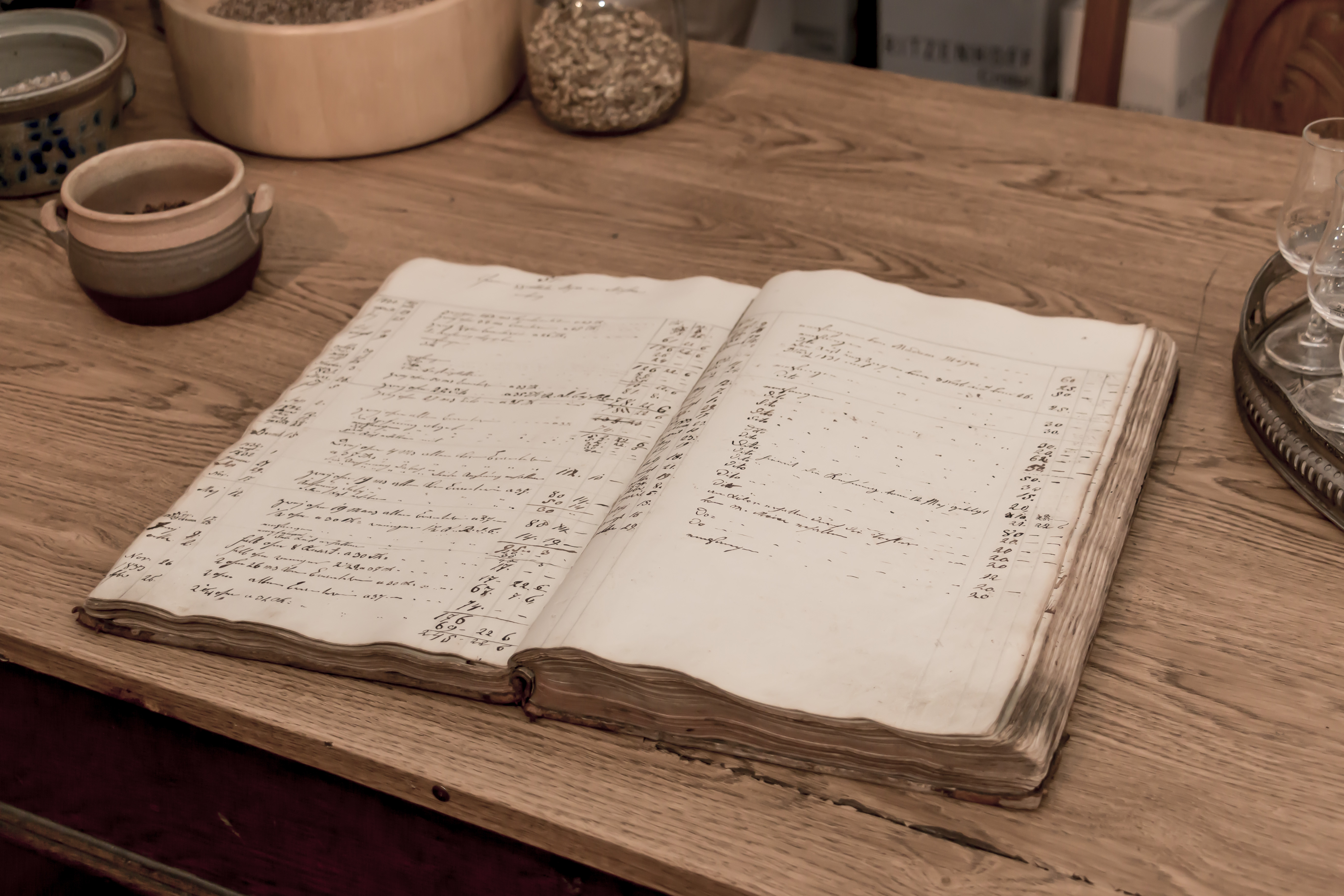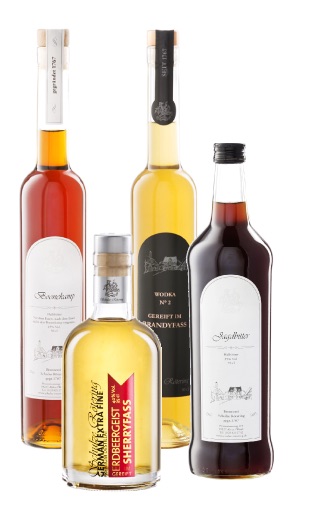You can taste passion!
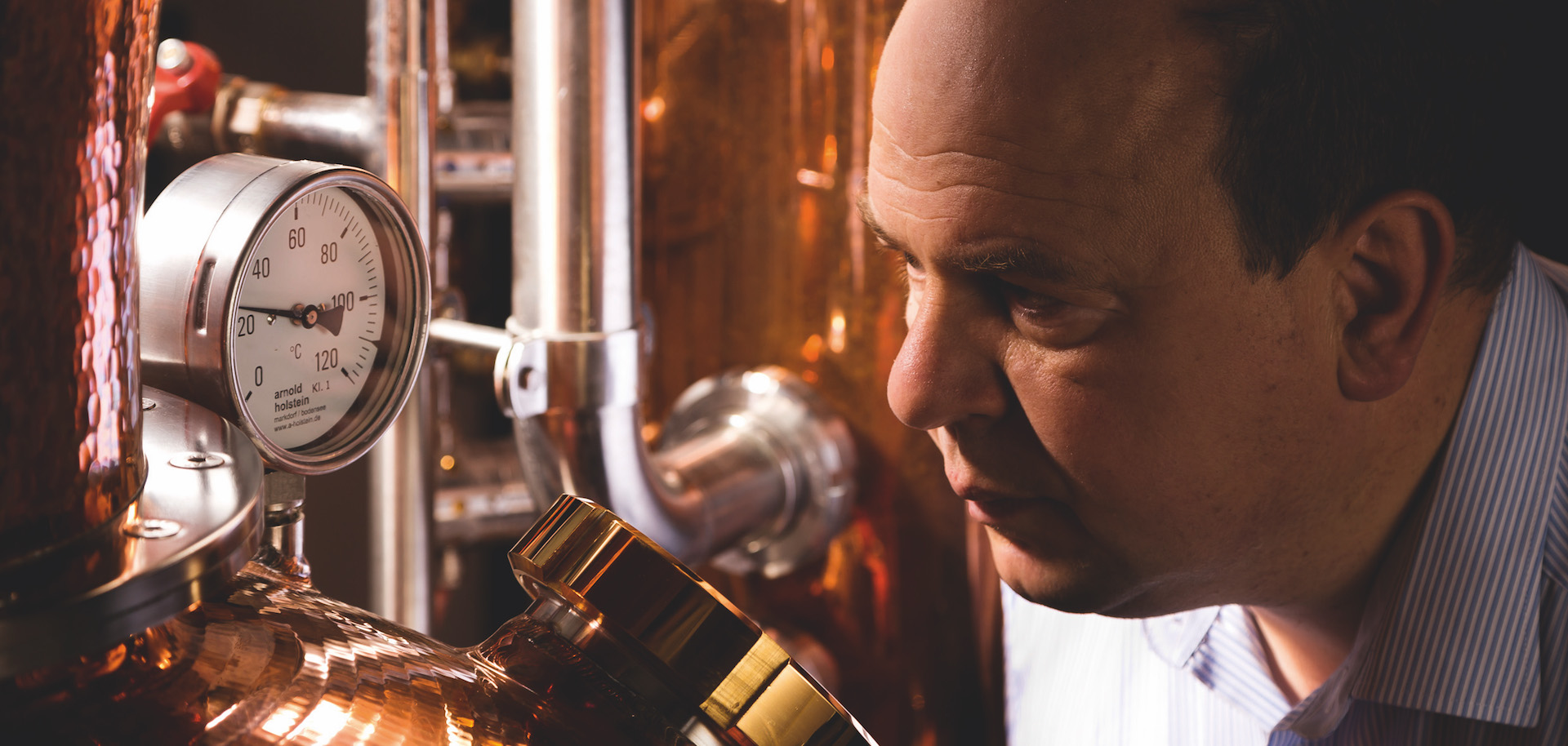
Text: Olaf Adam; Photos: Bernd C. Gassner, Olaf Adam
This article originally appeared in 0dB - Das Magazin der Leidenschaft N°2
"You're just attached to your patch of land." Some may say such a sentence lightly, but few have as good reasons for it as Martin Schulze Rötering. The "patch of land" he speaks of is the Schulze Rötering farm near Ahlen, which has been farmed by his family for at least 500 years—probably closer to 800. At first, the Schulze Röterings worked here as serfs to the local bishop; since the early 19th century, they have owned the farm.
Long-term Planning
Even when Schulze Rötering talks about his "family business," he thinks on quite a different scale than most people. He has just, for example, spent several tens of thousands of euros to reforest several hectares of commercial woodland with oaks. "If things go well, we can start to make commercial use of this new forest in about 150 years. But it might also take 200 years—you can't know for sure yet." The fruits of this investment will, at the earliest, be harvested by his great-great-grandchildren—a planning horizon that is almost unimaginable in times when most managers think only as far as the next quarterly report.
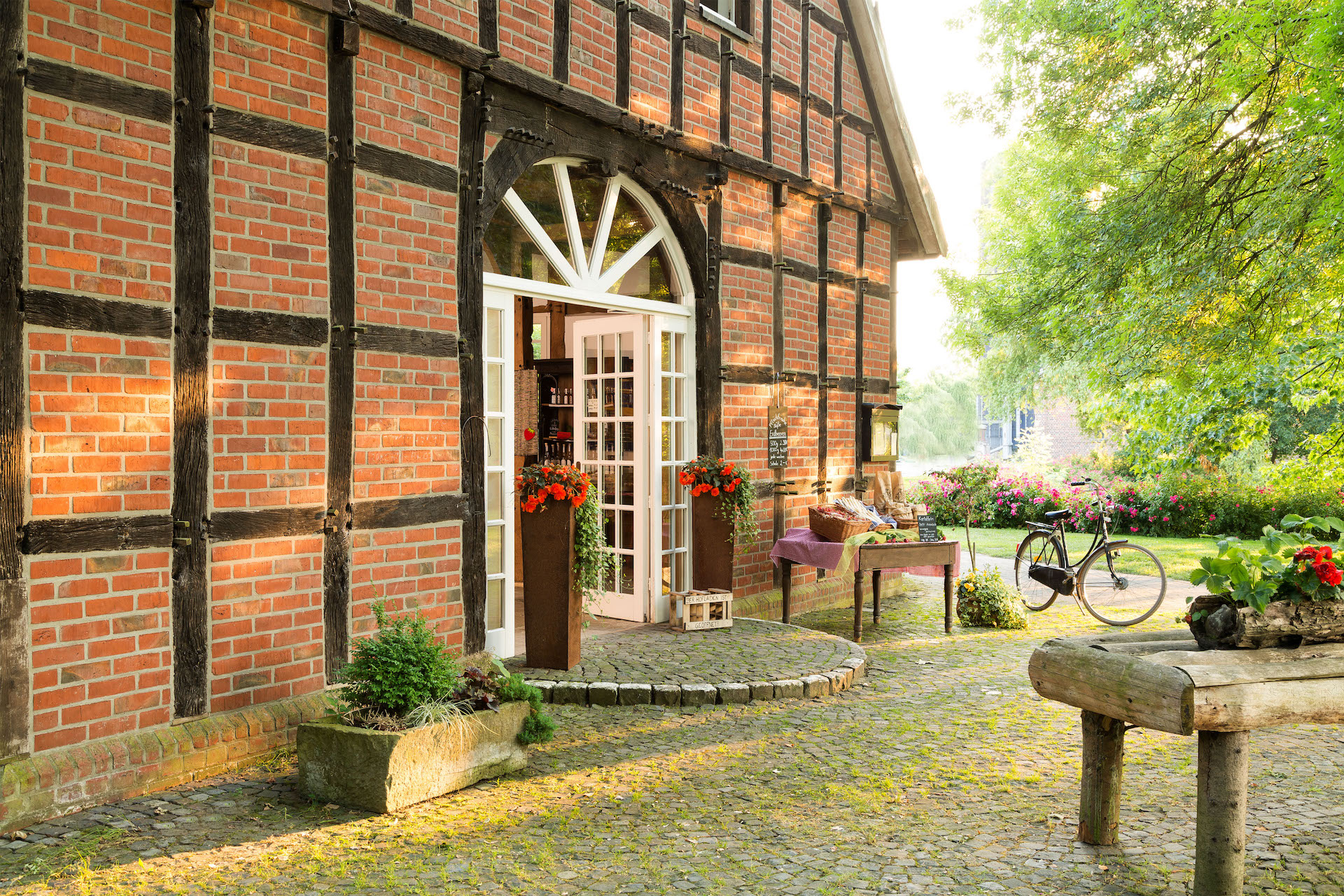
Talking to Martin Schulze Rötering, you often get the sense that the meaning of much-used words is cast in a new light. "Tradition," "sustainability," "consistency"—when he says such things, it simply carries more weight than when they appear in the marketing speak of a company that has passed through the hands of half a dozen investors in just a few decades. Tradition, for the farmer from Ahlen, is far more than an empty phrase. He understands tradition not only as what once was, but above all in terms of what will one day be. After all, careful change is a prerequisite for lasting consistency.
Homemade Spirits
Currently, the Schulze Rötering farm grows asparagus, strawberries, and grains, mainly wheat. Most of this wheat is distilled directly on the farm into spirits, a nearly unbroken family tradition for 250 years.
Martin Schulze Rötering learned the art of distilling from the ground up, first from his grandfather and father on the farm, then through formal training as a master distiller. At that time, the farm produced only raw alcohol, a cheap base product that was sold on. But Schulze Rötering was not content with that for long. "Even as a child, I heard stories that my grandfather made the best and smoothest Korn far and wide. Back then, there were no supermarkets, no advertising, no marketing. You had to convince customers with the quality of the product—only then did word get around and people came back."
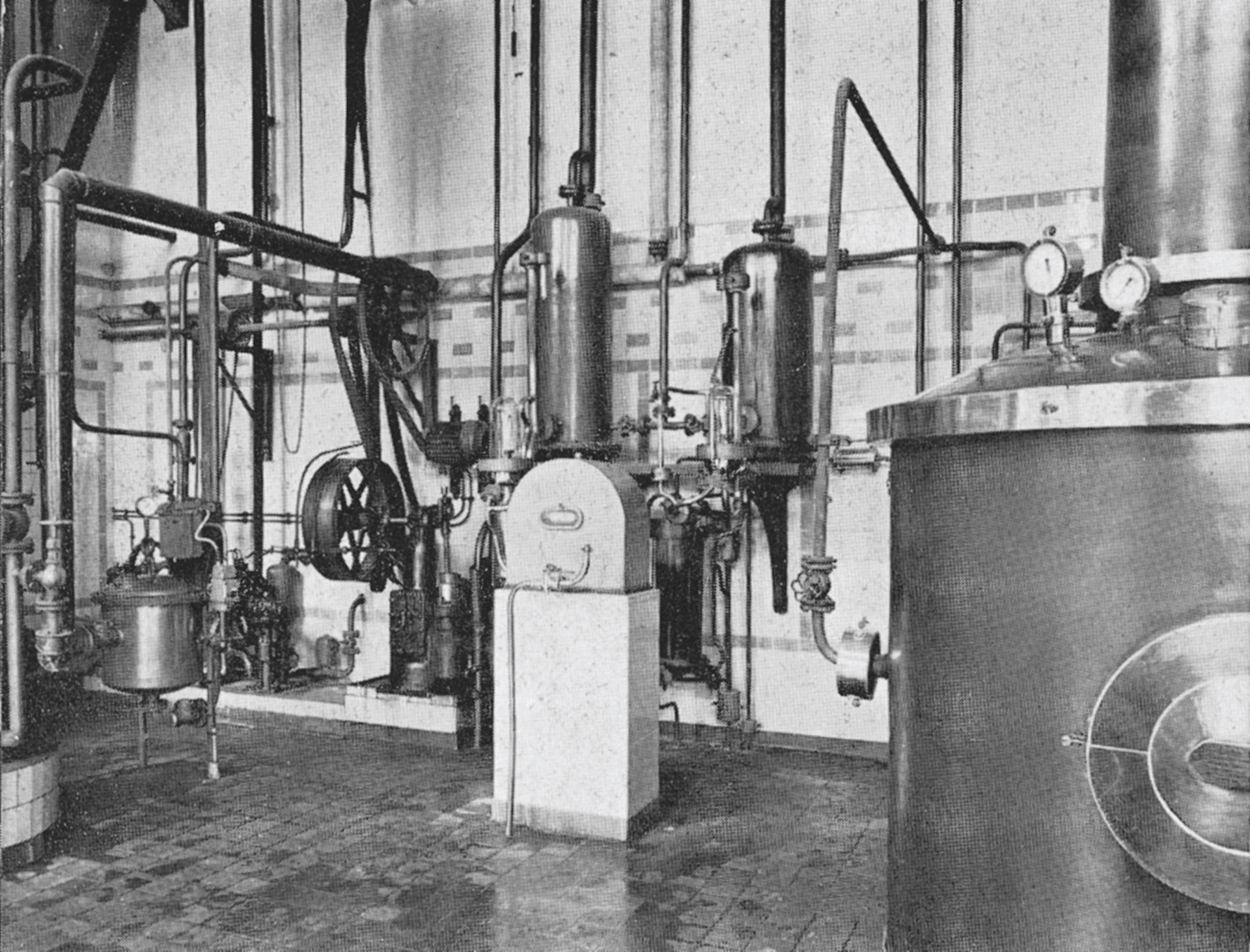
The aspiring master distiller even found old samples from his grandfather's work, bottled in 1917 and 1927. For his master's thesis, he analyzed these old distillates and found that they had a methanol content of only 16 mg/l—today, that level is more likely to be 30 mg/l or higher. Methanol is a so-called "secondary alcohol" formed during distilling and is toxic in higher amounts. It gives schnapps its sharpness—the higher the methanol content, the more the distillate burns. The lower the amount, the milder the product. So, his grandfather's old distillates were much smoother than today's products.
Family Secret
The reason for this was the elaborate fine distillation system that Schulze Rötering Sr. commissioned in 1908. Although this system no longer existed, Martin Schulze Rötering found the original plans in the extensive family archive. It was originally designed with 46 purification plates to allow for the lowest possible methanol content. Later, five more plates were added—the samples mentioned above date from that period. However, in a diary entry, the experienced distiller revealed that he would actually have preferred a system with 55 plates.
No Guarantee of Success
Martin Schulze Rötering took the old plans, updated them technically—and planned for 60 purification plates, just to be sure. But among the few manufacturers who can still build such distillation systems today, he met with incomprehension for his ambitious plans. Impossible, pointless, we won't do it, was the verdict of the experts. But Schulze Rötering was undeterred, continued his research, spoke with old master distillers who encouraged him, and finally found a company willing to install the planned system on the farm. For 100% prepayment and explicitly without any guarantee of functionality.
It was a bold undertaking and far from cheap. But Schulze Rötering went ahead, and since 2015, the tower of a fine distillation system once again rises from the old distillery, almost 20 meters high. And against all odds, the new system worked just as intended. After some successful test distillations and a bit of fine-tuning, Schulze Rötering can now produce a wheat spirit with less than 5 mg methanol per liter—a distillate with a purity that is probably unique in the world.
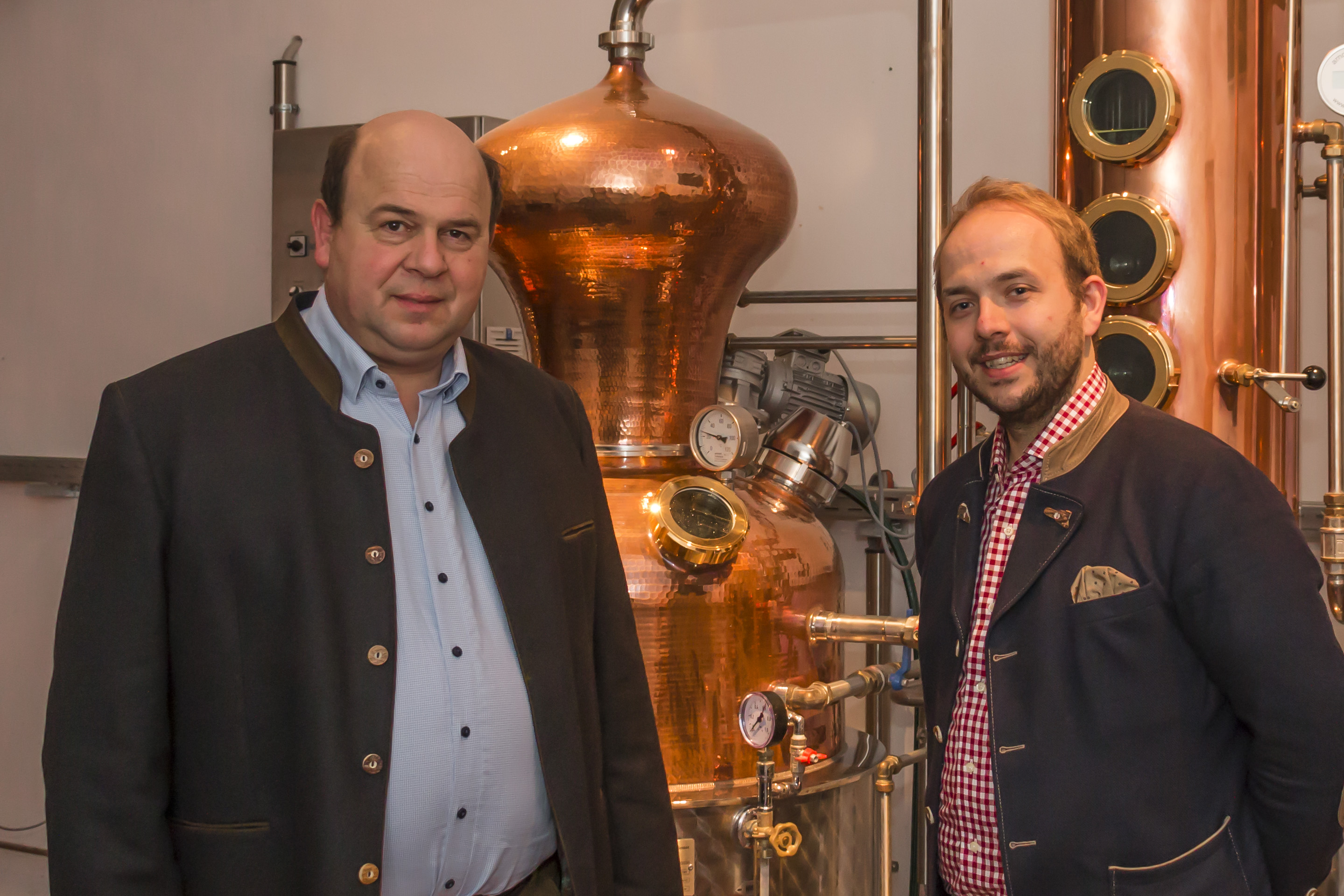
From Field to Glass
So, the Westphalian's tenacity paid off, and once again, fine spirits are being distilled at the Schulze Rötering farm. This includes a juniper and a Boonekamp, both made according to 250-year-old family recipes. But the distiller is especially proud of his Korn made from wheat grown on his own farm. From field to glass, Schulze Rötering controls everything affecting the quality of the final product. And that's just how he likes it.
Among experts, there's no doubt that wheat produces the most refined and finest alcohol of all. But most customers know Korn only as a cheap mass-produced product. Only now is the perception of this traditional distillate slowly beginning to change again, and Schulze Rötering is making a decisive contribution with his own premium spirits. Among other things, he offers variants aged in red wine, sherry, or Grand-Manier casks, which impressively demonstrate the quality that can be found in this underestimated Korn. During distillery tours and tastings, Schulze Rötering and his "pleasure ambassador" Boris Burat often have to do some real persuading. "Many visitors flat-out refuse Korn. But once you've talked the skeptics into a first tasting sip, they see Korn in a whole new light."
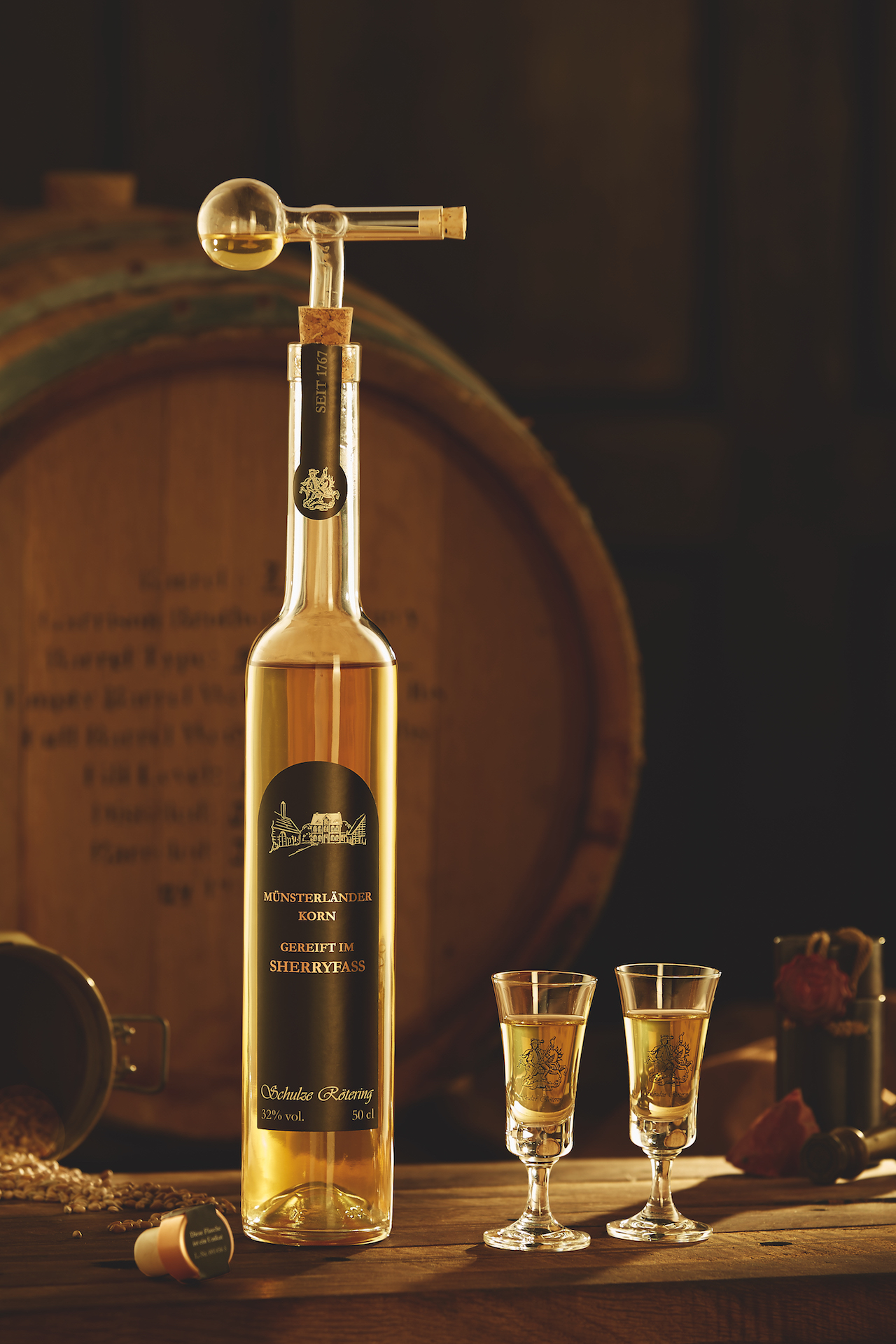
The Spirit of the Fruit
Since Schulze Rötering grows mainly strawberries in addition to wheat, it was a matter of honor that the young premium distillery should also produce a strawberry spirit. That, however, was anything but easy, since the red field fruits release little aroma in alcohol and are difficult to process. Other producers resort to added flavors, but of course, that was out of the question for the Schulze Röterings.
After some failed attempts, this hurdle, too, was overcome; the fine strawberry spirit from Ahlen has even won international awards. The same goes for another top product from the Schulze Rötering distillery: the orange spirit. The oranges for it don't grow well in the Münsterland climate, but thanks to friendly relations with an orange farmer in Mallorca, the Schulze Röterings have access to small quantities of the last citrus fruits of the season. These have had the most hours of sun on the tree and therefore possess the most intense aroma.
Doing it by Hand
For the production of this exquisite orange spirit, only the peels—because of the essential oils they contain—and the pure fruit flesh are used. For ten liters of finished orange spirit, 170 oranges have to be peeled, sliced, and painstakingly freed from the bitter white albedo—all by hand, of course. This is only possible because the whole family pitches in. And even then, Martin Schulze Rötering wondered for a while whether the effort could be worth it. "We always calculate our sales prices only afterwards, when we're happy with the result. In this case, the finished product was so expensive that we could hardly imagine selling it." These worries turned out to be unnecessary, as the aromatic orange spirit is now one of the absolute bestsellers in the farm shop and in the online store, and it was awarded the highest possible distinction, Double Gold, at the internationally renowned World Spirits Awards in Austria.
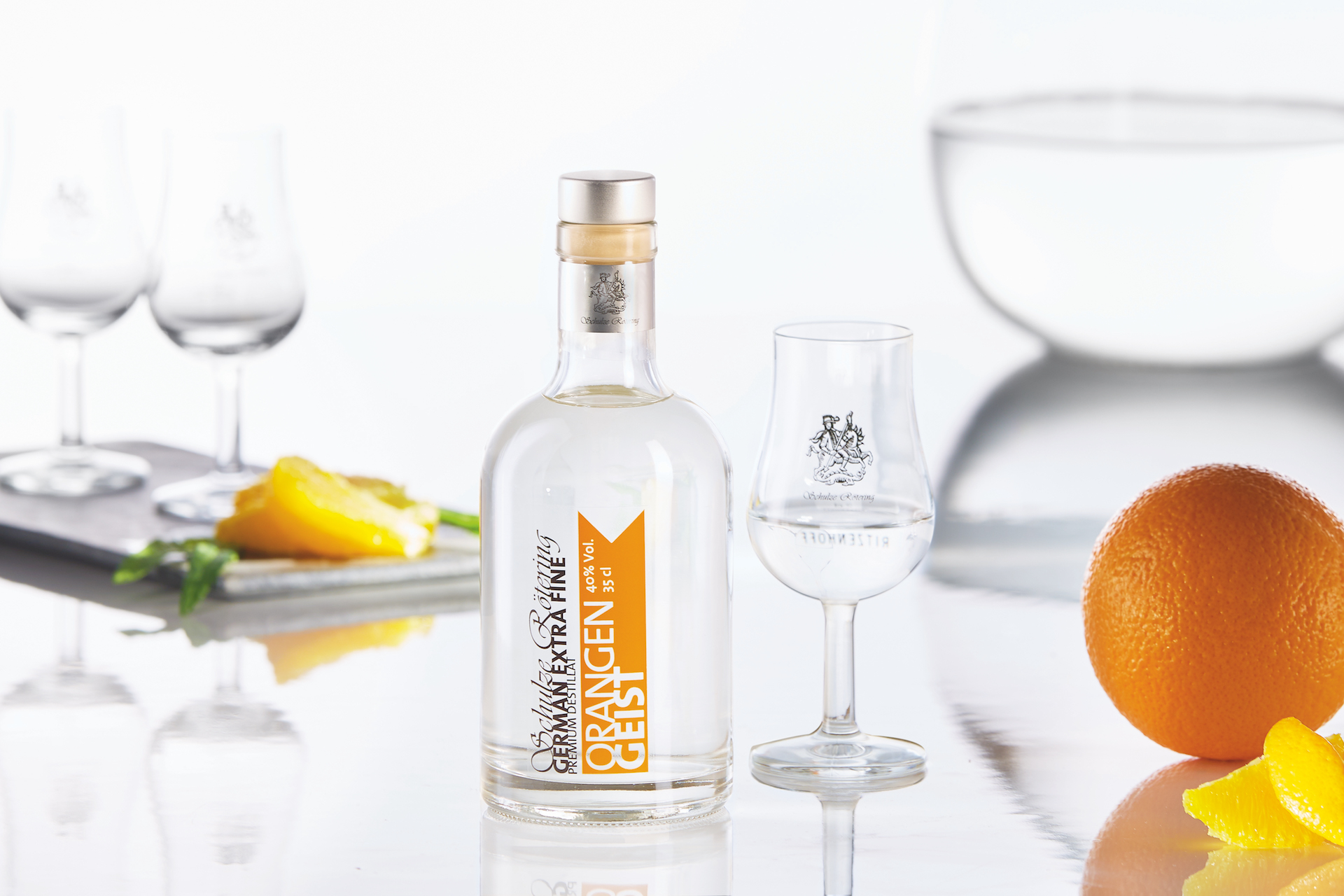
For Special Moments
Word has long since spread in Münsterland and beyond that outstanding distillates are made in Ahlen. People line up at the farm shop on weekends, and the entire year's production is usually sold out quickly. Representatives of larger spirits manufacturers regularly inquire, eager to buy the fine alcohol in larger quantities for their own products. But all such requests are politely declined, even though there would probably be good business to be had. For one thing, it would only strengthen the competition; but above all, Martin Schulze Rötering fears that quality would suffer. "If you want absolute top quality, you can't scale up or accelerate production at will."
And cutting corners on quality for the sake of possible profit is out of the question for Martin Schulze Rötering. After all, reviving his grandfather's art of distilling was a true labor of love for him. When he sees that others enjoy his spirits, that's his greatest reward anyway. Like recently, when a couple from Düsseldorf went out of their way on their way to Sylt to bring the orange spirit from Ahlen along as the perfect spirited companion for sunsets together on the beach. Special products for special moments in life—that is exactly what Schulze Rötering wants to offer.
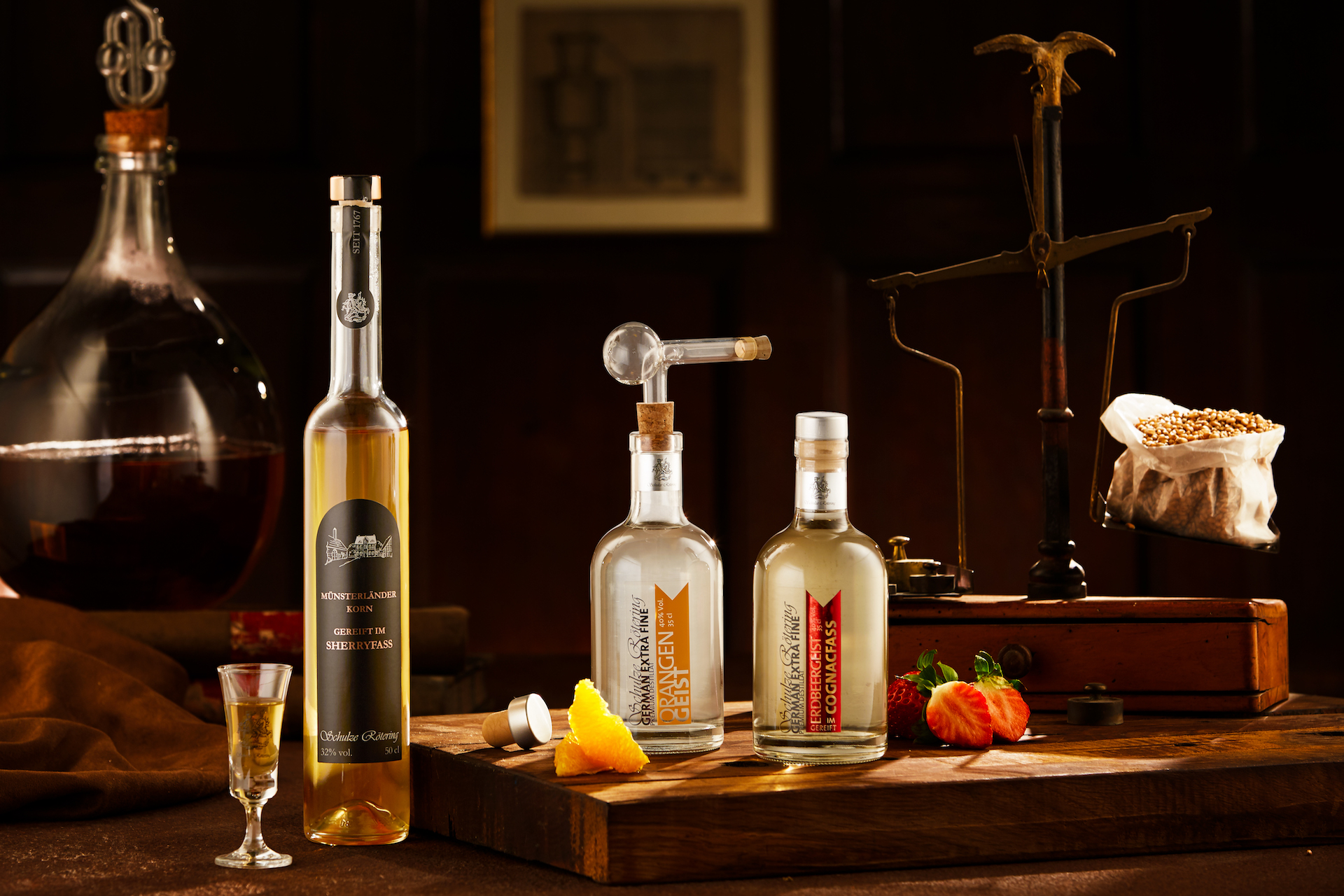
Quality pays off in the end; Boris Burat is convinced of that, too. "What we do is as far removed from a mass product as you can imagine. Every bottle, every glass, every sip is full of passion. And you can taste that passion."
More information: schulze-roetering.de
